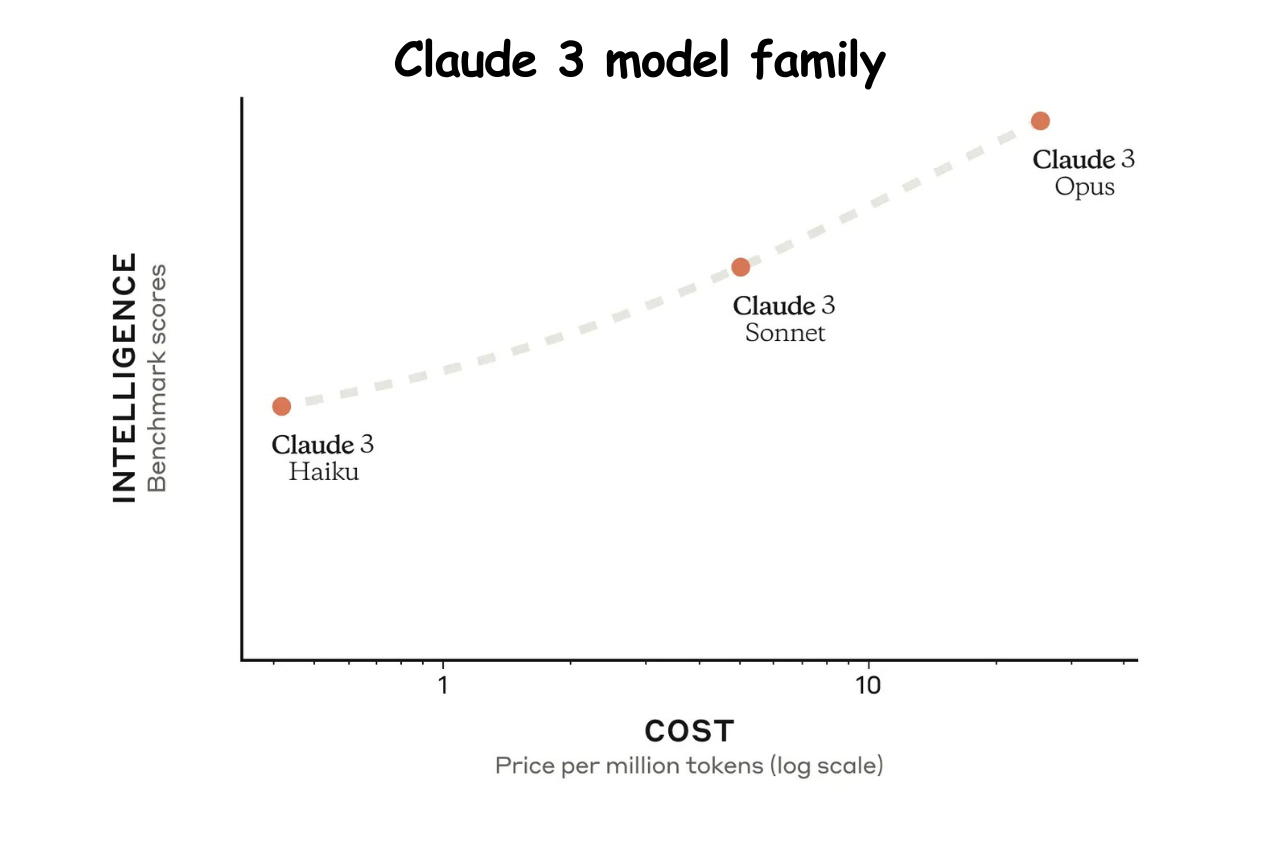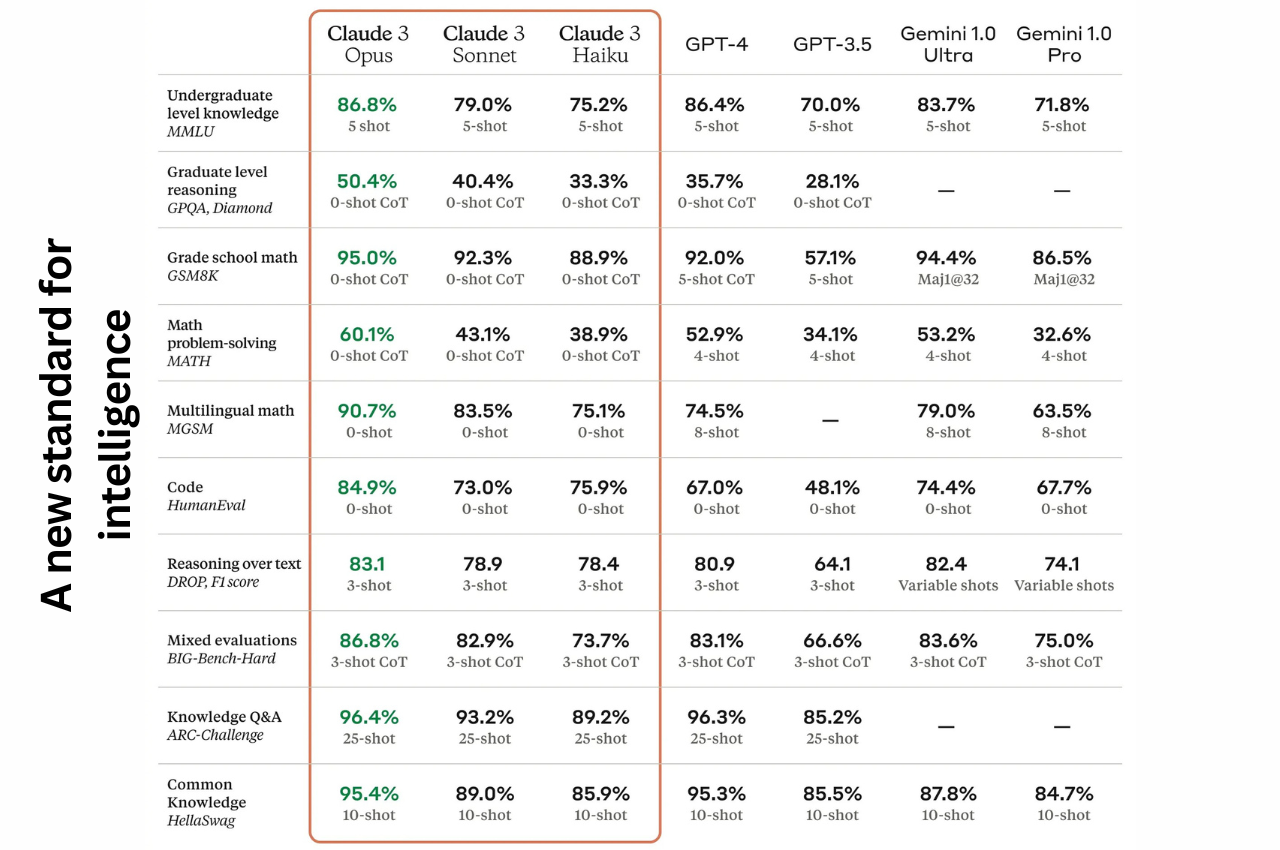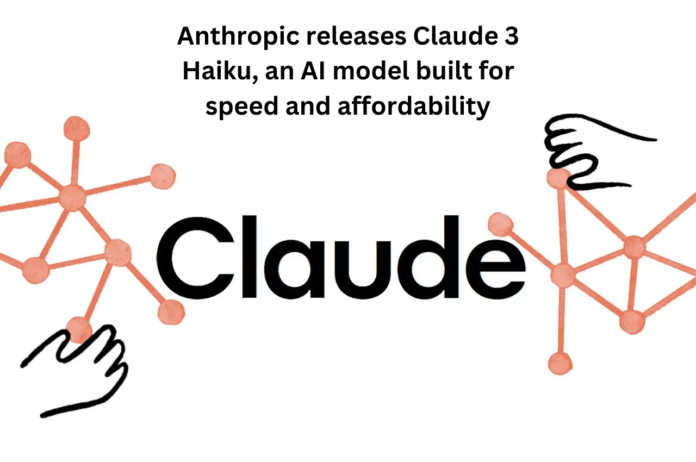Anthropic, a startup based in San Francisco, has recently unveiled Claude 3 Haiku, the latest member of its Claude 3 AI model lineup. Haiku distinguishes itself as the swiftest and most cost-effective model in its category, offering advanced visual capabilities and impressive performance on industry standards.
Thank you for reading this post, don't forget to subscribe!The introduction of Haiku follows closely on the heels of Anthropic’s launch of the Claude 3 model family earlier this month, which includes Claude 3 Opus and Claude 3 Sonnet. Haiku completes the trio, giving corporate clients a variety of choices to optimize intelligence, speed, and expenses according to their specific needs.
Daniela Amodei, Anthropic’s co-founder and president, highlighted Haiku’s suitability for scenarios where rapid response times are crucial, such as customer support or internal chat services. With its ability to handle high volumes while keeping costs low, Haiku ensures instantaneous responses, a vital feature for businesses in these sectors.
Tailored for high-volume, latency-sensitive applications
Haiku boasts impressive speed, capable of processing 21,000 tokens (around 30 pages) per second for prompts under 32,000 tokens. This rapid processing capability enables businesses to efficiently analyze large amounts of documents such as quarterly filings, contracts, or legal cases in a fraction of the time compared to other models in its performance category.
Dario Amodei, CEO and cofounder (alongside his sister Daniela Amodei), identifies two main customer groups for Haiku: those who prioritize low latency and those who prioritize cost efficiency. According to Amodei, “Latency sensitive customers are typically focused on user experience, where a responsive UI is crucial. Companies understand that even a slight delay in response time, from one second to three seconds, can result in losing a portion of customers and disrupting their workflow.”
Advanced vision capabilities and enterprise-grade security
Haiku not only excels in speed but also possesses advanced vision capabilities, enabling it to efficiently process and analyze visual data such as charts, graphs, and photos. This remarkable feature opens up new horizons for enterprise applications that heavily rely on visual information.
According to Daniela’s statement to VentureBeat, Claude 3 Haiku is expected to outperform other models in its price range significantly. She further explains that while open source models are popular due to their affordability, Claude 3 Haiku offers a much more capable alternative that incorporates prospects, trustworthiness, reliability, and safety principles.
In the development of Haiku, Anthropic has placed great emphasis on enterprise-grade security and robustness. In addition to harmful output, the company conducts rigorous testing to minimize the risk of model jailbreaks. Additionally, they implement continuous systems monitoring, secure coding practices, and stringent access controls to provide an extra layer of defense.
Claude 3 model family

A new standard for intelligence
Opus, our most advanced model, surpasses its counterparts on various evaluation benchmarks for AI systems, encompassing undergraduate level expert knowledge (MMLU), graduate level expert reasoning (GPQA), basic mathematics (GSM8K), and more. It demonstrates a remarkable level of comprehension and fluency in complex tasks, positioning itself at the forefront of general intelligence.
In contrast, all Claude 3 models exhibit enhanced capabilities in analysis and forecasting, nuanced content creation, code generation, and conversing in non-English languages such as Spanish, Japanese, and French.
The following presents a comprehensive comparison between the Claude 3 models and those developed by our peers, based on multiple capability benchmarks [1]:

Versatility within the Claude 3 family
The Claude 3 Haiku launch coincides with a period of heightened demand for robust, efficient, and secure AI solutions in the enterprise sector. As companies increasingly rely on AI to streamline operations, enhance customer experiences, and gain a competitive advantage, versatile models like Haiku are well-positioned to facilitate the widespread adoption and scalability of AI technologies across various industries.
Daniela Amodei noted, “Haiku may be suitable for specific use cases. For instance, within an enterprise, while Claude 3 Opus could be preferred for intensive technical research or complex coding tasks, Haiku might be more suitable for internal chat wikis or similar applications.” This highlights the versatility of the Claude 3 model range.
Anthropic’s Claude 3 model family, which includes Opus and Sonnet in addition to the newly introduced Haiku, has already established itself as a benchmark for AI performance in diverse cognitive tasks. By offering a comprehensive suite of AI solutions tailored to meet the distinct requirements of enterprise clients, the company is well-equipped to address a wide range of needs.
Claude 3 Haiku is currently accessible through Anthropic’s API and is exclusive to Claude Pro subscribers on claude.ai. While the model is presently available on Amazon Bedrock, it will soon be launched on Google Cloud Vertex AI, expanding its reach to businesses globally.
Technocommy is a connecting space, the leading growth and networking organization for business owners and leaders. Do I qualify?


